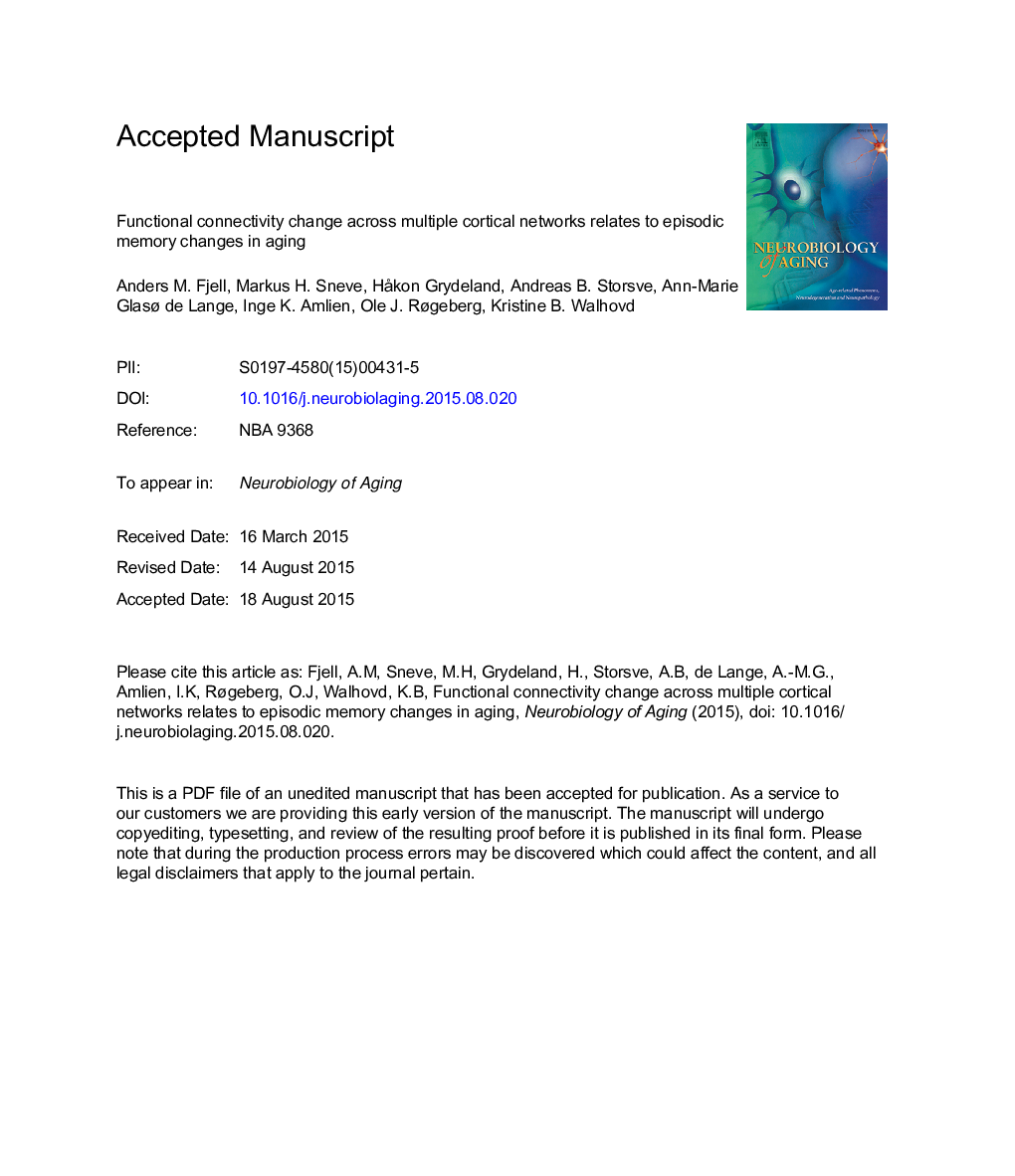| Article ID | Journal | Published Year | Pages | File Type |
|---|---|---|---|---|
| 6803771 | Neurobiology of Aging | 2015 | 54 Pages |
Abstract
A major task of contemporary cognitive neuroscience of aging is to explain why episodic memory declines. Change in resting-state functional connectivity (rsFC) could be a mechanism accounting for reduced function. We addressed this through 3 studies. In study 1, 119 healthy participants (20-83Â years) were followed for 3.5Â years with verbal recall testing and magnetic resonance imaging. Independent of atrophy, recall change was related to change in rsFC in anatomically widespread areas. Striking age-effects were observed in that a positive relationship between rsFC and memory characterized older participants while a negative relationship was seen among the younger and middle-aged. This suggests that cognitive consequences of rsFC change are not stable across age. In study 2 and 3, the age-dependent differences in rsFC-memory relationship were replicated by use of a simulation model (study 2) and by a cross-sectional experimental recognition memory task (study 3). In conclusion, memory changes were related to altered rsFC in an age-dependent manner, and future research needs to detail the mechanisms behind age-varying relationships.
Related Topics
Life Sciences
Biochemistry, Genetics and Molecular Biology
Ageing
Authors
Anders M. Fjell, Markus H. Sneve, Håkon Grydeland, Andreas B. Storsve, Ann-Marie Glasø de Lange, Inge K. Amlien, Ole J. Røgeberg, Kristine B. Walhovd,
